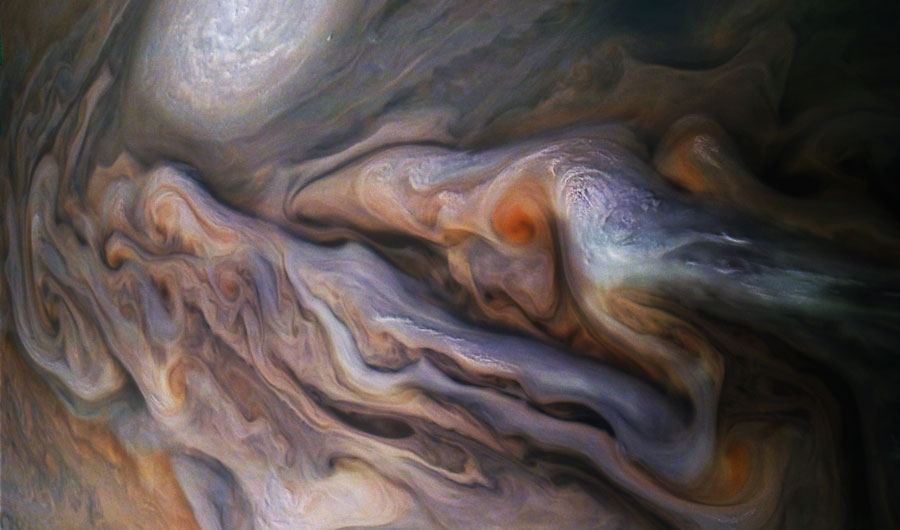Jupiter’s Magnetic Field is Changing
NASA’s Juno spacecraft has detected changes in Jupiter’s magnetic field, making it the first planet known to share this feature with Earth.
For the first time in history, humans have detected a changing magnetic field on a planet other than our own — Jupiter. The latest revelation could help scientists better understand how a planet’s magnetic field changes over time.
The discovery was made by NASA’s Juno spacecraft, named after the Roman goddess — mother of Mars and wife of Jupiter. According to NASA, scientists chose the name because the goddess “was able to peer through the clouds and reveal Jupiter’s true nature” when he “drew a veil of clouds around himself to hide his mischief.” Since its launch in 2011 and arrival at Jupiter in 2016, Juno has been flying by and checking on her namesake husband every 53 days.
The scientists discovered changes in Jupiter’s magnetic field when they compared the latest Juno data with measurements done by older missions such as Pioneer 10 and Voyager 1 from the 1970s. A paper in Nature Astronomy published this Monday detailed the findings and suggested some explanations.
The scientists think the culprit behind the variations may be the violent Jovian storms that extend deep into Jupiter’s surface for thousands of miles. Their hypothesis is supported by the fact that an invisible-to-the-eye patch of magnetic field near Jupiter’s equator, dubbed the Great Blue Spot, is where the strongest magnetic field variations were detected in the latest observation.
Although the magnetic field variation detected on Jupiter may have an origin different from that of Earth’s, the discovery may still help scientists understand the changes of Earth’s magnetic field, a not-yet-fully understood phenomenon.
The magnetic north pole of Earth has been wobbling around like a top, shifting southward some 30 miles a year since 2015. It is changing fast enough that our GPS systems need to be frequently updated. A weakening or reversal of Earth’s magnetic shield could potentially cause a mass extinction by exposing our planet to harmful radiation from space.





